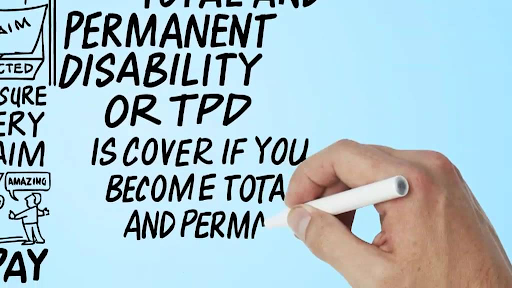In the world of Australian superannuation, you hear a lot of different terms tossed about. One of them is known simply as “TPD”, but what is it and how and when can you make a claim based on TPD?
In this article, TPD will be explained, as well as the options open to you if you feel you need to make a TPD claim.
TPD Explained
The letters “TPD” represent “Total and Permanent Disability”.
TPD is a part of life insurance often attached to superannuation funds. The idea is for a lump sum payment to be provided to people who suffer total and permanent disability and are unable to work and earn an income because of their situation.
To successfully claim a lump sum TPD payment, the recipient must be able to prove that they can no longer perform their usual work role, and also cannot adequately perform any kind of employment role, even with further training.
Permanent illness or disability is one that is never going to improve and will remain incumbent on the person for the rest of their natural life. No recovery is possible, and therefore no real chance of the person successfully and gainfully returning to the workforce.
Every insurance company can hold a different view of what constitutes a permanent disability or illness, and most insurance companies are not likely to willingly just hand over a large lump sum payment without contending the issue first on any grounds they can come up with.
TPD insurance can be used to cover existing debts, as well as provide financial assistance to provide for the recipient on a daily basis.
It’s basically a form of loss of income insurance.
There are 3 definitions of TPD insurance:
- Own Occupation TPD
- Any Occupation TPD
- Non-Occupational TPD
When it comes to this insurance being tied in with an Australian superannuation account, typical it’s the “Any Occupation TPD” that applies. This stipulates that the person suffering the permanent disability or illness must be unable to work in any occupation, not just the one they were employed in when the event that led to the disability occurred.
If you take out TPD insurance on a personal level (not attached to a superannuation account), then the lump sum payment you receive is generally not taxed. It’s a different story when TPD forms a part of a superannuation fund though, as then it’s liable to be taxed.
So if you find yourself in a position where you can no longer work, but the insurance company is giving you the proverbial run around when it comes to deciding on your TPD claim, what can you do to get a positive result?
Team Up With a Specialist Lawyer
Making a claim for TPD can be a bit of a minefield when dealing with giant insurance companies, so your best bet is to enlist the services of a law firm that specializes in TPD insurance claims. These firms know the industry, fully understand the law and have methods that get the desired results for their clients.
This is not a situation where you want to be the Lone Ranger and try and do it all yourself. Having a lawyer on your side doesn’t guarantee a successful outcome, but you’ll have far more chance of receiving a lump sum payout with one than without.
If you’re wondering whether you even have a valid case for a TPD claim, your lawyer will be able to determine this on your behalf.
Generally, you won’t have to concern yourself with high legal costs and upfront fees, as many of these firms will offer you an initial consultation free to discuss your situation and see if you have a valid case to pursue.
If they decide you do, they’ll likely take on your case based on a “no win no fee” policy, which essentially means you have nothing to lose and everything to gain.
If they win your case, they get paid. If they lose, you owe them nothing.
If you’re unfortunate enough to have been struck down with a permanent debilitating illness or injury, then talk to your lawyer about making a claim for TPD.
















